Installing hinged shower doors in your bathroom comes with a bunch of perks. They're great for small spaces because they don't need extra room to slide open. They're also simple to clean since you can reach all parts of the door. Plus, they just look classy. A stylish hinged door can make your bathroom feel like a fancy hotel suite.
What Are Hinged Shower Doors?
Hinged shower doors are basically like regular doors, but for your shower. They're attached to the shower frame or wall with hinges on one side, allowing them to swing open and closed. Most of the time, they open outward into the bathroom, but some can open inward if you've got the space in your shower.
Using a hinged shower door is pretty straightforward. You grab the handle, swing it open, step in, and close it behind you. When you're done, you open it up again and step out. Simple, right? The beauty is in that simplicity - no tracks to clean, no wheels to get stuck.
Now, let's talk materials. The most common material for hinged shower doors is glass. It's durable, easy to clean, and lets light through, which is great for making your bathroom feel bigger and brighter. The glass used isn't your regular window glass, though. It's tempered glass, which is much stronger and safer. If it does break (which is rare), it shatters into small, rounded pieces instead of sharp shards.
The hinges and handles are usually made of metal. You'll see a lot of chrome, brushed nickel, or oil-rubbed bronze. These metals are picked because they can stand up to the wet environment of a bathroom without rusting or corroding.
As for the glass itself, you've got options. Clear glass is the most common - it's simple, clean-looking, and shows off your tile work. But if you want a bit more privacy, you can go for frosted or tinted glass. Frosted glass has that cloudy look that lets light through but obscures the view. Tinted glass comes in different colours and opacities, so you can match it to your bathroom decor.
Some people even go for textured glass, which has patterns pressed into it. This can add a decorative touch and provide some privacy without blocking as much light as frosted glass.
The thickness of the glass can vary too. Thinner glass (around 3/8 inch) is lighter and less expensive, while thicker glass (1/2 inch or more) feels more substantial and luxurious. The thicker stuff is also less likely to wobble when you open and close it.
So that's the lowdown on hinged shower doors. They're simple, stylish, and come in enough varieties to fit pretty much any bathroom style or budget. Whether you're remodelling your whole bathroom or just updating your shower, a hinged door is definitely worth considering.
The advantages of hinged shower doors
Aesthetic appeal: Hinged shower doors offer a clean, elegant look that can enhance any bathroom design. Their simple, classic appearance works well in both modern and traditional settings, giving your shower enclosure a polished, high-end feel.
Ease of cleaning and maintenance: One of the biggest perks of hinged doors is how simple they are to keep clean. Unlike sliding doors with tracks that can collect grime, hinged doors have smooth surfaces that are simple to wipe down. A quick squeegee after each use, and they'll stay sparkling with minimal effort.
Durability and longevity: Hinged shower doors are built to last. Made with tempered glass and sturdy hinges, they can withstand daily use without showing wear and tear. This durability means you won't need to replace them as often as some other options, making them a solid long-term investment.
Enhanced accessibility: For those with mobility concerns or those planning for the future, hinged doors offer excellent accessibility. They can open wide, providing simple entry and exit from the shower. This feature is particularly valuable for households with elderly members or individuals using mobility aids.
Versatility in design: Hinged doors come in a variety of styles to suit any bathroom decor. From frameless designs for a modern look to framed options for a more traditional feel, there's something for every taste. You can choose from clear, frosted, or patterned glass, and select from a range of hardware finishes to match your other bathroom fixtures.
The customisation options extend to the door's hardware as well. Handles and hinges come in various finishes like chrome, brushed nickel, or matte black, allowing you to coordinate with your taps and other bathroom elements. These details can tie your bathroom's look together seamlessly.
Hinged Shower Doors vs. Other Types of Shower Doors
Let's break down how hinged shower doors stack up against other types. There are a bunch of options out there, and each has its own thing going on.
Hinged vs. Pivot Shower Doors
First up, pivot doors. These are like hinged doors' cousins. Instead of side hinges, they have a mechanism at the top and bottom that allows the door to pivot. They swing open like a hinged door, but from a different point.
Space-wise, pivot doors need a bit more room to swing open, but they can be useful for wider openings. Installation is a bit trickier than hinged doors because you need to set up that pivot mechanism just right.
Pros of pivot doors: They look sleek and can handle wider openings better than hinged doors. Cons: They're usually pricier and need more precise installation.
Hinged vs. Sliding Shower Doors
Next, sliding doors. These guys slide along a track instead of swinging open. They're great if you're short on space in your bathroom, because they don't need any clearance to open.
Sliding doors typically have two or more panels that glide past each other. They give a more modern look compared to hinged doors.
Pros of sliding doors: Space-saving and good for wider showers. Cons: The tracks can be a pain to clean, and they don't give you as wide an opening as hinged doors.
Hinged vs. Saloon Shower Doors
Now for something a bit different - saloon doors. Yep, like in old Western movies. These doors are split in the middle and swing both ways. They're not super common in showers, but some folks like the unique look.
Saloon doors give you easy access from both sides, which can be handy. But they don't seal as tightly as hinged doors, so you might get more water on your floor.
Pros of saloon doors: Easy to get in and out; unique look. Cons: Less water-tight; can feel less sturdy than a single hinged door.
Hinged vs. Bifold Shower Doors
Last but not least, bifold doors. These are like those closet doors that fold in on themselves. They're another good option if you're tight on space.
Bifold doors have panels connected by hinges that fold together when you open them. They don't swing out as far as hinged doors, so they're good for small bathrooms.
Pros of bifold doors: Great for small spaces; give a wide opening when fully open. Cons: More moving parts that can wear out, and they can feel less solid than a single hinged door.
Choosing the Right Hinged Shower Door for Your Bathroom
Alright, let's talk about picking the perfect hinged shower door for your bathroom. It's not rocket science, but there are a few things you'll want to keep in mind.
First up, measuring. This is crucial; get it wrong, and you'll end up with a door that doesn't fit. Measure the width of your shower opening at the top, middle, and bottom. Use the smallest measurement to be safe. Also, measure the height from the tub or shower base to where you want the door's top.
Next, think about style. Do you want a framed door with metal around the edges or a frameless one for a sleeker look? Consider your bathroom's overall style. A modern bathroom might look best with a frameless, clear glass door, while a more traditional space might suit a framed door with frosted glass.
Glass thickness matters too. Thinner glass (3/8 inch) is cheaper but can feel a bit flimsy. Thicker glass (1/2 inch or more) feels more solid and luxurious, but it'll cost you more. If you've got kids who might bang the door around, thicker might be worth it.
Don't forget about hardware. Hinges come in different styles - some are more visible, others try to be discreet. Handles range from simple knobs to fancy pulls. And brackets (if you're going frameless) come in various designs. Make sure these match your bathroom fixtures.
Lastly, think about size. Standard sizes are cheaper, but if your shower opening is an odd size, you might need to go custom. It'll cost more, but it'll fit perfectly.
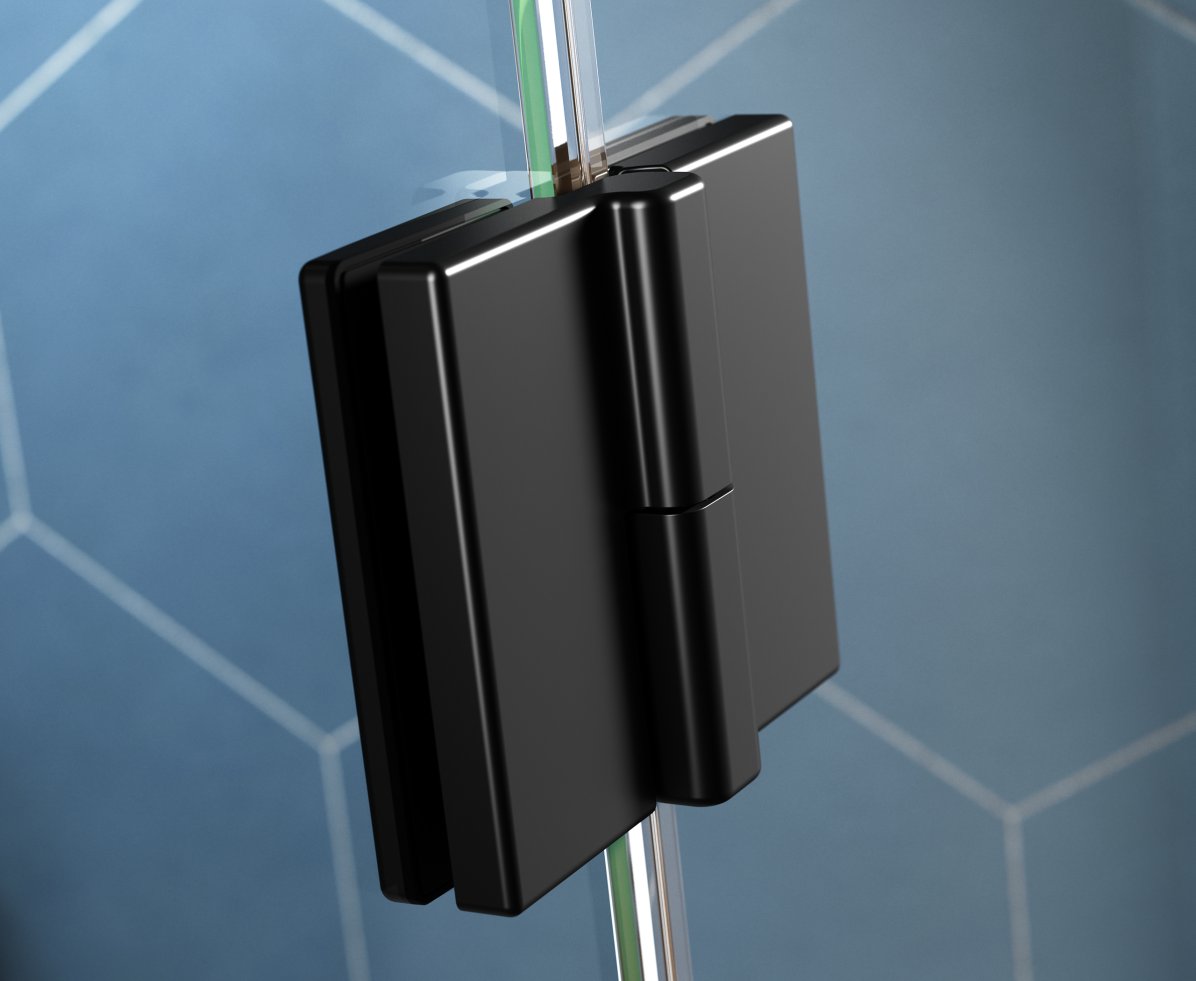
Common Questions About Hinged Shower Doors
Now let's tackle some questions people often ask about hinged shower doors.
How much do hinged shower doors cost? It varies a lot. A basic framed door might run you £100-£200, while a high-end frameless door could cost £1000 or more. Custom sizes and fancy finishes will bump up the price.
Can hinged shower doors be installed in any bathroom? Not quite. You need enough clearance for the door to swing open without hitting anything. If your bathroom is tiny, you might need to look at sliding or bifold doors instead.
Are hinged shower doors safe? Generally, yes. They're made with tempered glass, which is much stronger than regular glass. If it does break, it shatters into small, rounded pieces instead of sharp shards. Just make sure to close it gently - slamming any glass door isn't a great idea.
How long do hinged shower doors last? With proper care, a good hinged shower door can last 20 years or more. The glass itself can last indefinitely, but hardware might need replacing after a while.
Can I install a hinged shower door myself? It's possible, but tricky. You need to get the door perfectly level and plumb (straight up and down), or it won't close properly. If you're handy and have the right tools, go for it. But for most people, hiring a pro is worth it to make sure it's done right.
Remember, a shower door is something you'll use every day, so it's worth taking the time to choose one that works well for your space and your needs.

 5 Star Rated 2129 reviews
5 Star Rated 2129 reviews
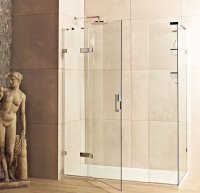
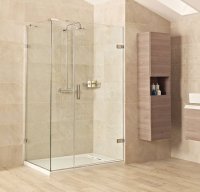
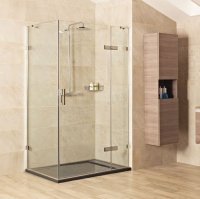
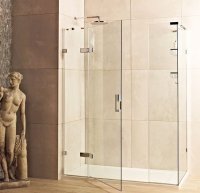
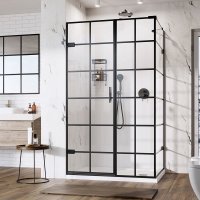
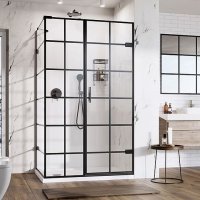
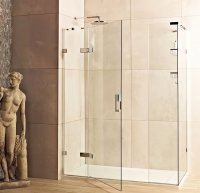
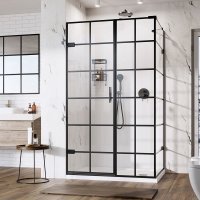
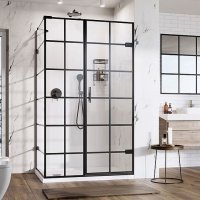
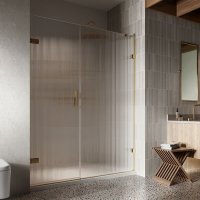
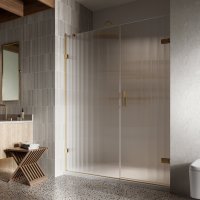
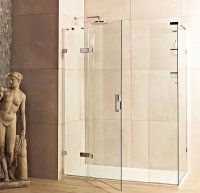
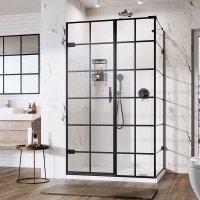
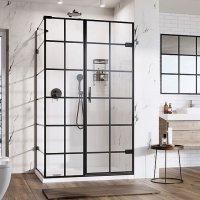
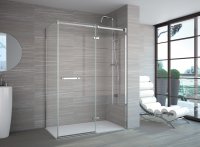
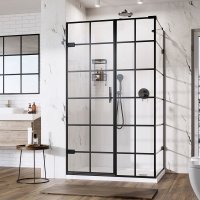
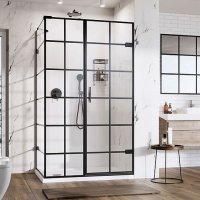
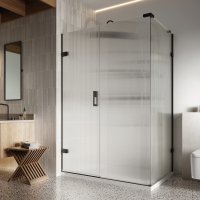
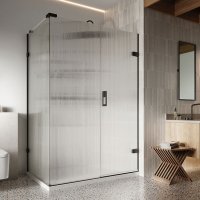
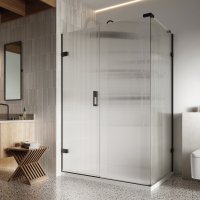
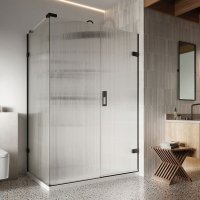
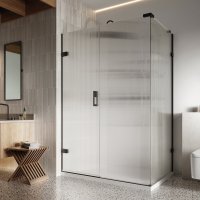
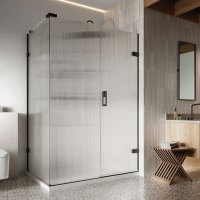
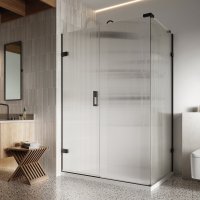
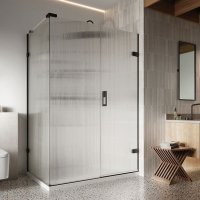
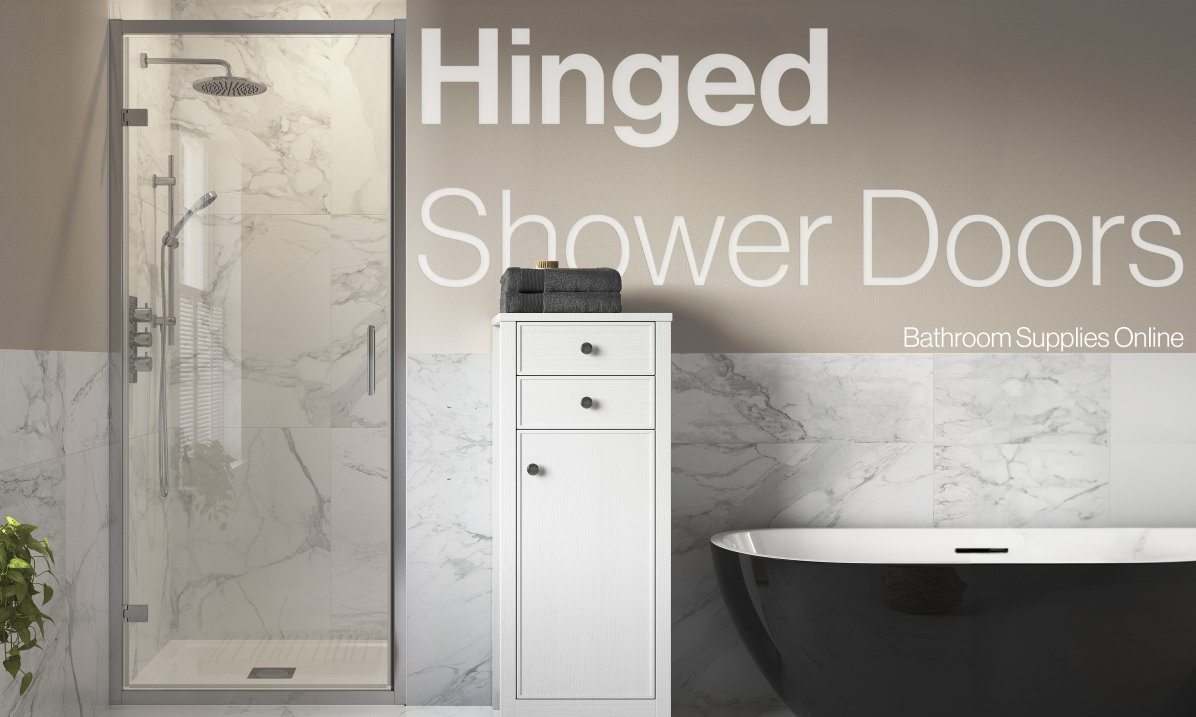
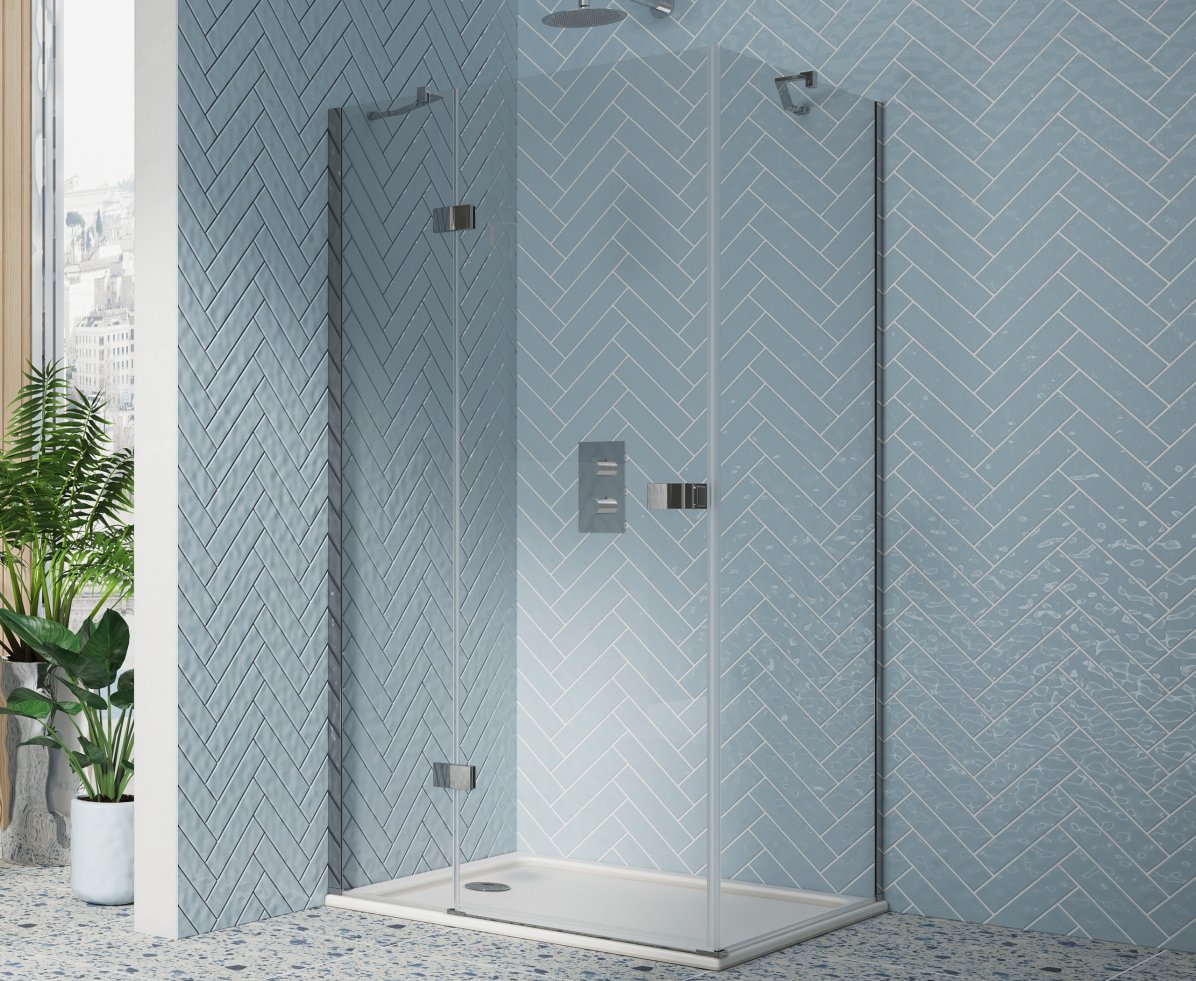
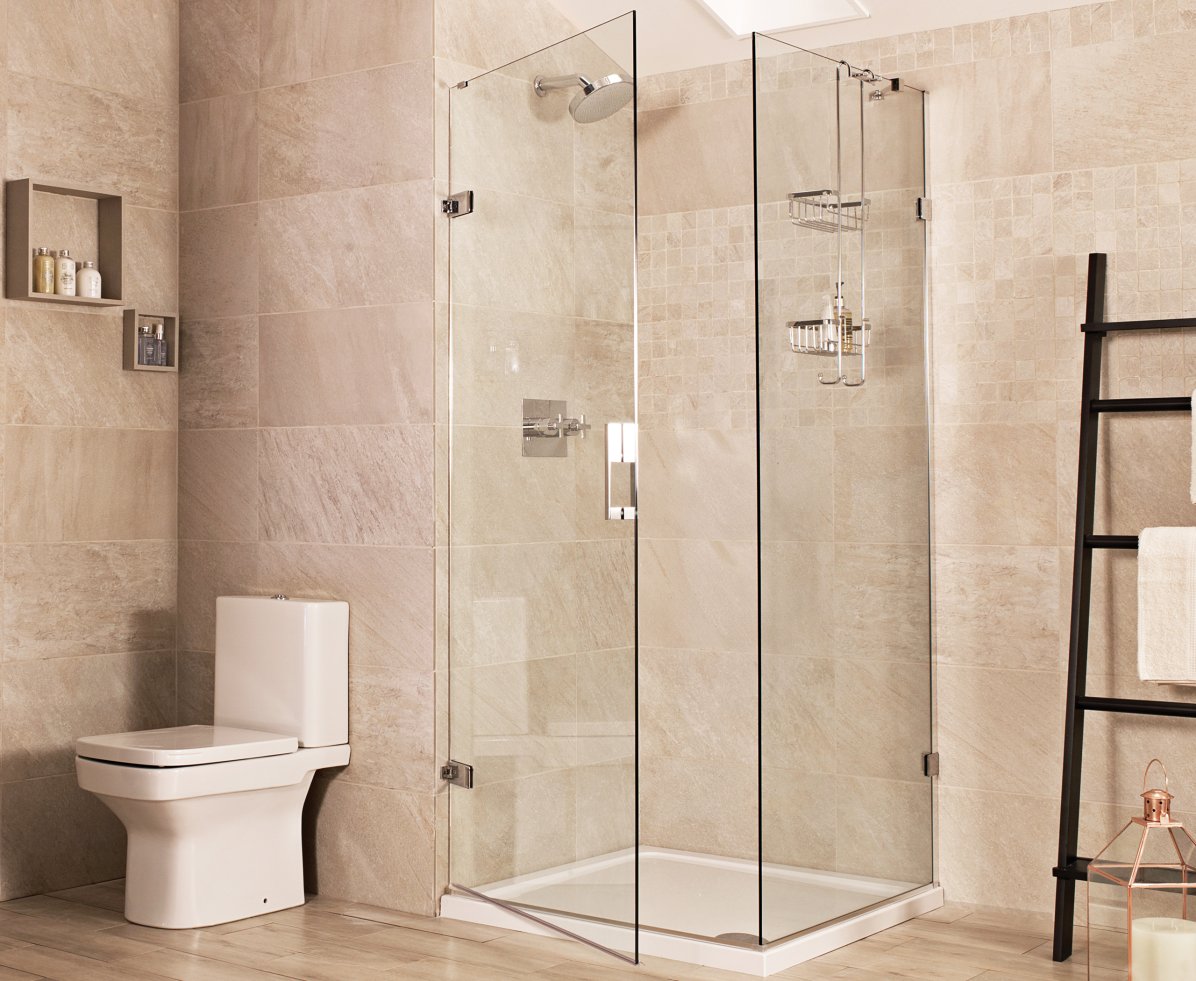
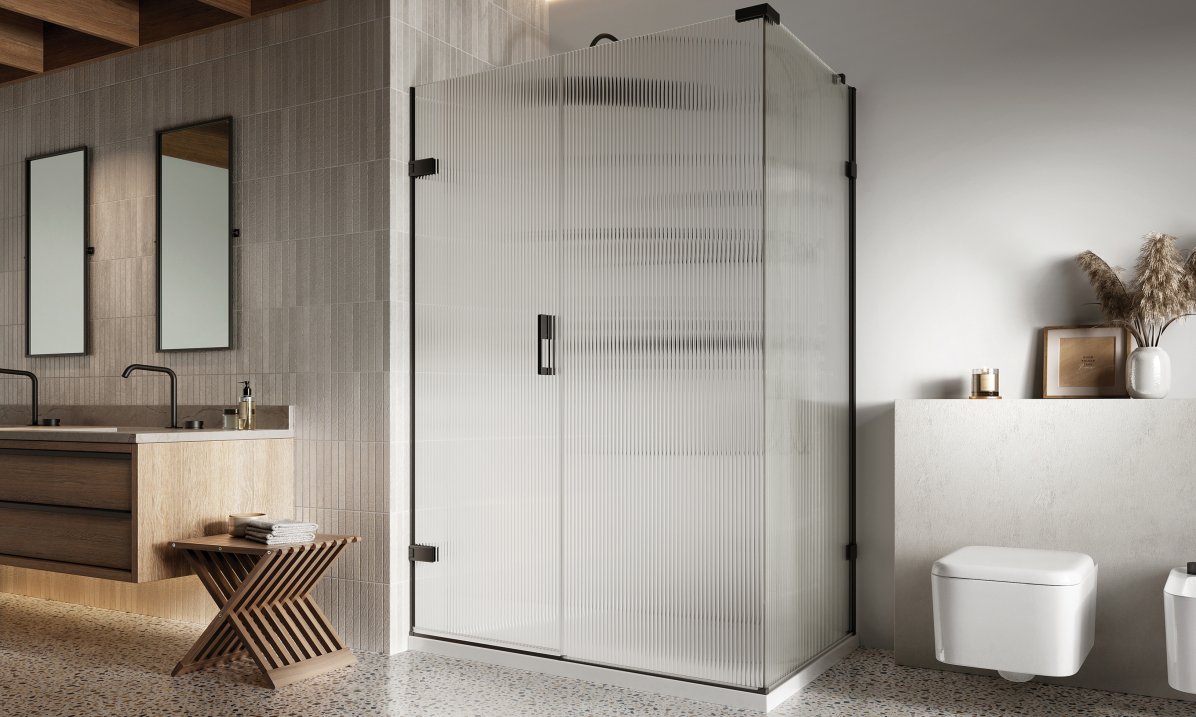
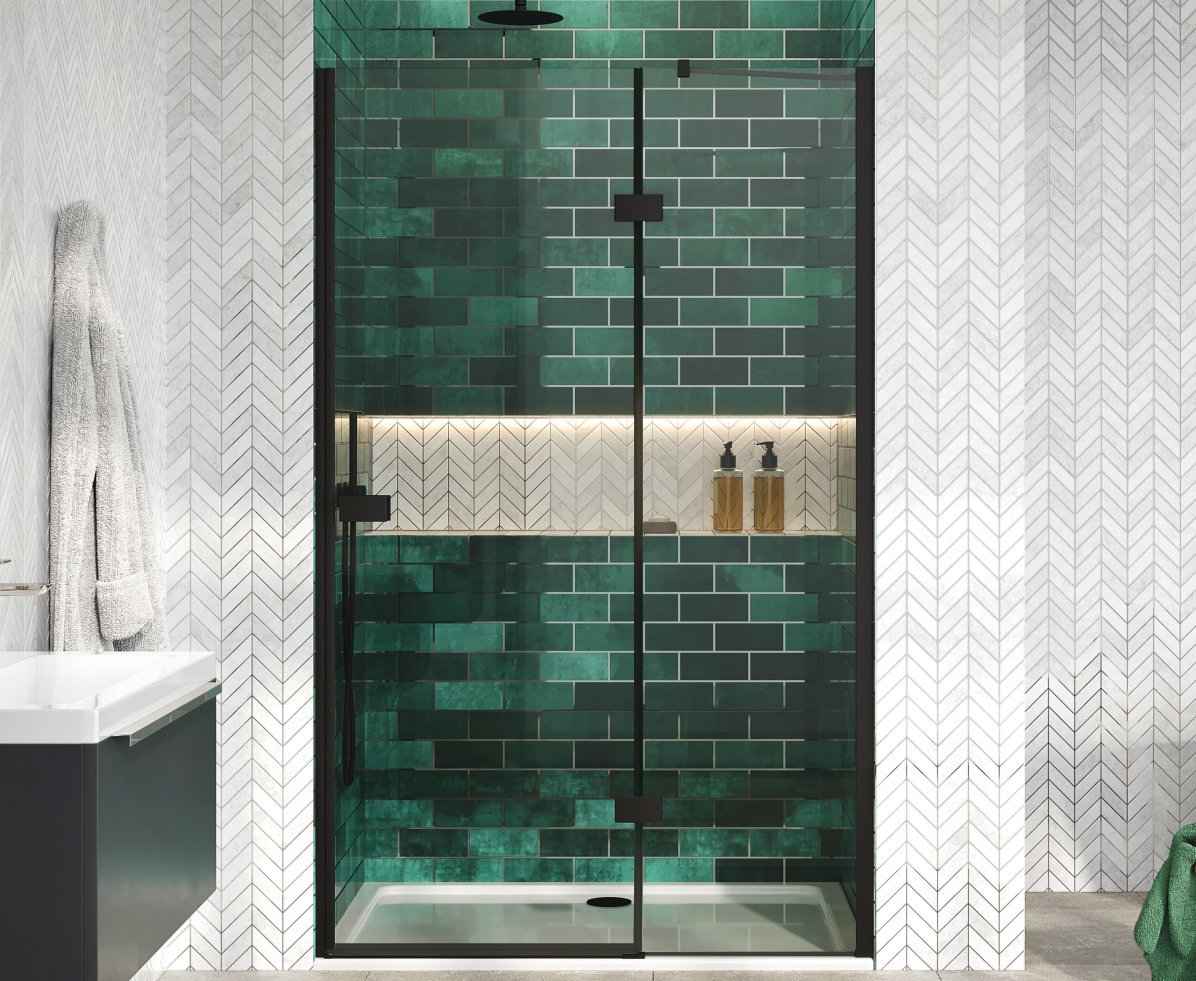



Stay Connected